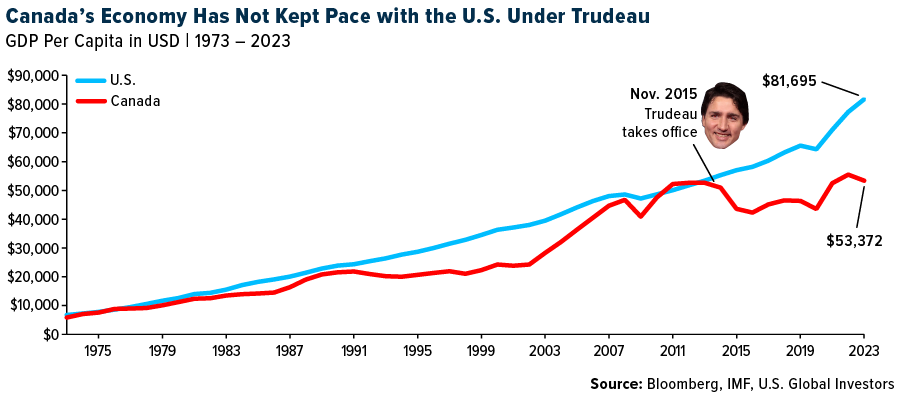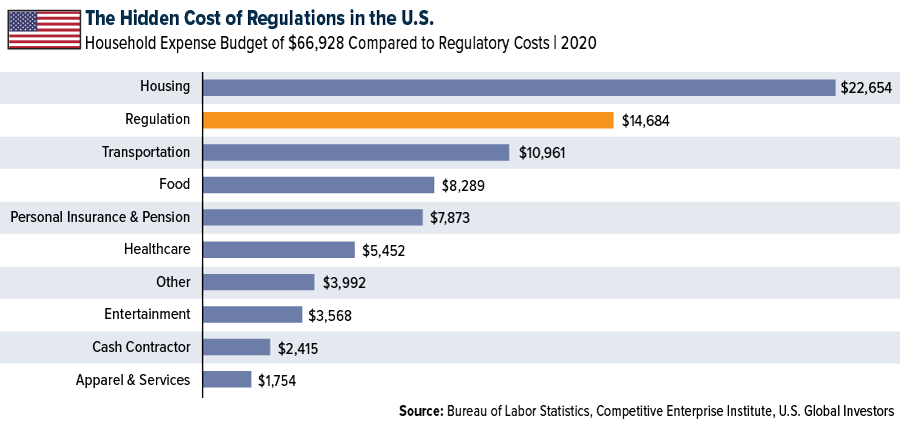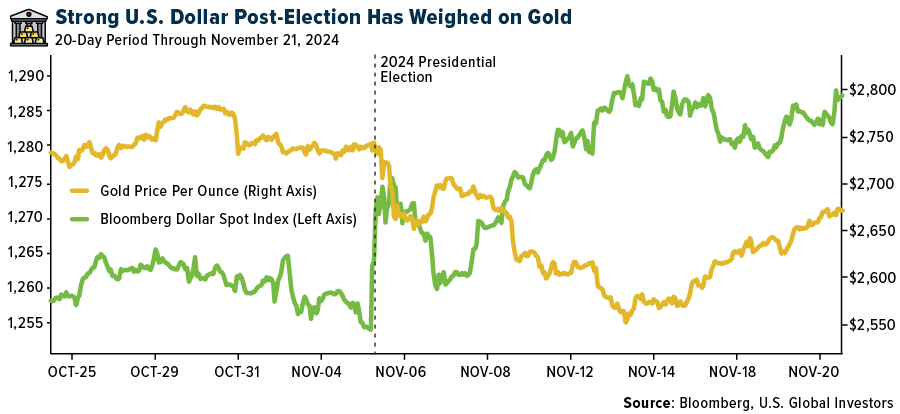Last week, at the North American Blockchain Summit in Dallas, Texas, I had the distinct privilege of moderating a fireside chat with former Canadian Prime Minister Stephen Harper.
Our conversation explored how blockchain technology can strengthen the economy, increase transparency and create new investment opportunities.
One standout moment was Harper’s reflection on the role the middle class plays in winning elections. In his 2018 book Right Here, Right Now, the prime minister urged fellow conservatives to focus on pragmatic solutions to everyday problems faced by the middle class. That was the key to winning elected office, he said.
He’s absolutely right. Here in the U.S., the middle class drove much of the enthusiasm for President-elect Donald Trump and his “America First” policies. Exit polls show that Trump overwhelmingly won the vote of those without a college education and those making between $30,000 and $49,000.
A Tale of Two Prime Ministers
Harper also spoke of his commonsense, fiscally conservative approach to dealing with the 2008–2009 global financial crisis. Canada, believe it or not, was the only G7 country that fully regained and even surpassed the business investment that was lost during the recession.
Unfortunately, my dear home country’s economy has struggled greatly under current Prime Minister Justin Trudeau, who has prioritized social issues over solutions to middle-class problems. During Trudeau’s administration, annual GDP-per-capita growth has averaged just 0.3%. Canadians are now significantly poorer than their U.S. counterparts.
The DOGE Initiative: Cutting Costs and Regulations
Harper’s insights tie directly into the economic anxieties felt by many working-class Americans. U.S. national debt now tops $36 trillion. Federal regulations cost approximately $2.1 trillion every year, representing around 7% of the country’s GDP, according to the Competitive Enterprise Institute (CEI).
This places a significant strain on middle-class households. The CEI estimates that the average American household pays over $14,500 annually in “hidden” regulatory taxes, exceeding what they spend on nearly every other expense except housing.

Trump’s decision to form the Department of Government Efficiency (DOGE), co-chaired by Elon Musk and Vivek Ramaswamy, aims to alleviate this burden. In a WSJ op-ed last week, Musk and Ramaswamy described their mission to cut wasteful government spending and regulations and massively deduce headcount:
“DOGE intends to work with embedded appointees in agencies to identify the minimum number of employees required at an agency for it to perform its constitutionally permissible and statutorily mandated functions.”
This reminds me of how Musk addressed runaway spending at Twitter, now rebranded as X, after he acquired the platform in April 2022. The Tesla chief reduced the company’s workforce by about 80%, yet X continues to operate just as well as ever.
Gold and Bitcoin
Economic uncertainty has led investors to seek safe havens. Gold has been one of the strongest-performing commodities in 2024, rising more than 31%. As you can see in the chart, the yellow metal took a hit after the election when the U.S. dollar rallied, weighing on commodities priced in the greenback.

Last week, Goldman Sachs forecast that gold could reach $3,000 an ounce by the end of 2025, supported by demand from central banks, geopolitical tensions and investors hedging against economic volatility.
Meanwhile, Bitcoin continues to trade in the $90,000s as Trump’s promise to turn the U.S. into the world’s “Bitcoin superpower” lights a fire under investors.
Senator Cynthia Lummis’s recent proposal to sell federal gold reserves to purchase Bitcoin has sparked debate. While Bitcoin’s potential is undeniable, I believe the U.S. would be unwise to abandon its gold, a cornerstone of financial stability for over 5,000 years.
Going forward, I believe that diversification remains key, especially as geopolitical tensions support the need for safe-haven assets like gold and Bitcoin.
—
Originally Posted November 25, 2024 – What It Takes to Win Elections, According to Former Canadian PM Stephen Harper
Past performance does not guarantee future results. All opinions expressed and data provided are subject to change without notice. Some of these opinions may not be appropriate to every investor. By clicking the link(s) above, you will be directed to a third-party website(s). U.S. Global Investors does not endorse all information supplied by this/these website(s) and is not responsible for its/their content.
Disclosure: US Global Investors
All opinions expressed and data provided are subject to change without notice. Holdings may change daily.
Some of these opinions may not be appropriate to every investor. By clicking the link(s) above, you will be directed to a third-party website(s). U.S. Global Investors does not endorse all information supplied by this/these website(s) and is not responsible for its/their content.
About U.S. Global Investors, Inc. – U.S. Global Investors, Inc. is an investment adviser registered with the Securities and Exchange Commission (“SEC”). This does not mean that we are sponsored, recommended, or approved by the SEC, or that our abilities or qualifications in any respect have been passed upon by the SEC or any officer of the SEC.
This commentary should not be considered a solicitation or offering of any investment product.
Certain materials in this commentary may contain dated information. The information provided was current at the time of publication.
Some links above may be directed to third-party websites. U.S. Global Investors does not endorse all information supplied by these websites and is not responsible for their content.
Please consider carefully a fund’s investment objectives, risks, charges and expenses. For this and other important information, obtain a fund prospectus by clicking here or by calling 1-800-US-FUNDS (1-800-873-8637). Read it carefully before investing. Foreside Fund Services, LLC, Distributor. U.S. Global Investors is the investment adviser.
Disclosure: Interactive Brokers
Information posted on IBKR Campus that is provided by third-parties does NOT constitute a recommendation that you should contract for the services of that third party. Third-party participants who contribute to IBKR Campus are independent of Interactive Brokers and Interactive Brokers does not make any representations or warranties concerning the services offered, their past or future performance, or the accuracy of the information provided by the third party. Past performance is no guarantee of future results.
This material is from US Global Investors and is being posted with its permission. The views expressed in this material are solely those of the author and/or US Global Investors and Interactive Brokers is not endorsing or recommending any investment or trading discussed in the material. This material is not and should not be construed as an offer to buy or sell any security. It should not be construed as research or investment advice or a recommendation to buy, sell or hold any security or commodity. This material does not and is not intended to take into account the particular financial conditions, investment objectives or requirements of individual customers. Before acting on this material, you should consider whether it is suitable for your particular circumstances and, as necessary, seek professional advice.
Disclosure: Futures Trading
Futures are not suitable for all investors. The amount you may lose may be greater than your initial investment. Before trading futures, please read the CFTC Risk Disclosure. A copy and additional information are available at ibkr.com.
Disclosure: Bitcoin Futures
TRADING IN BITCOIN FUTURES IS ESPECIALLY RISKY AND IS ONLY FOR CLIENTS WITH A HIGH RISK TOLERANCE AND THE FINANCIAL ABILITY TO SUSTAIN LOSSES. More information about the risk of trading Bitcoin products can be found on the IBKR website. If you’re new to bitcoin, or futures in general, see Introduction to Bitcoin Futures.
Disclosure: Digital Assets
Trading in digital assets, including cryptocurrencies, is especially risky and is only for individuals with a high risk tolerance and the financial ability to sustain losses. Eligibility to trade in digital asset products may vary based on jurisdiction.

